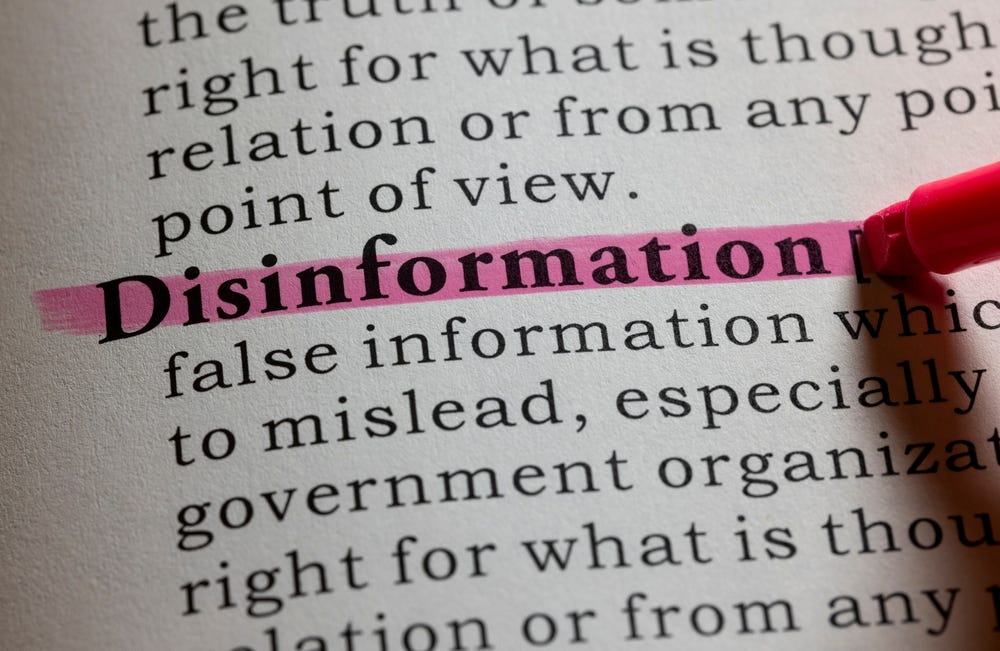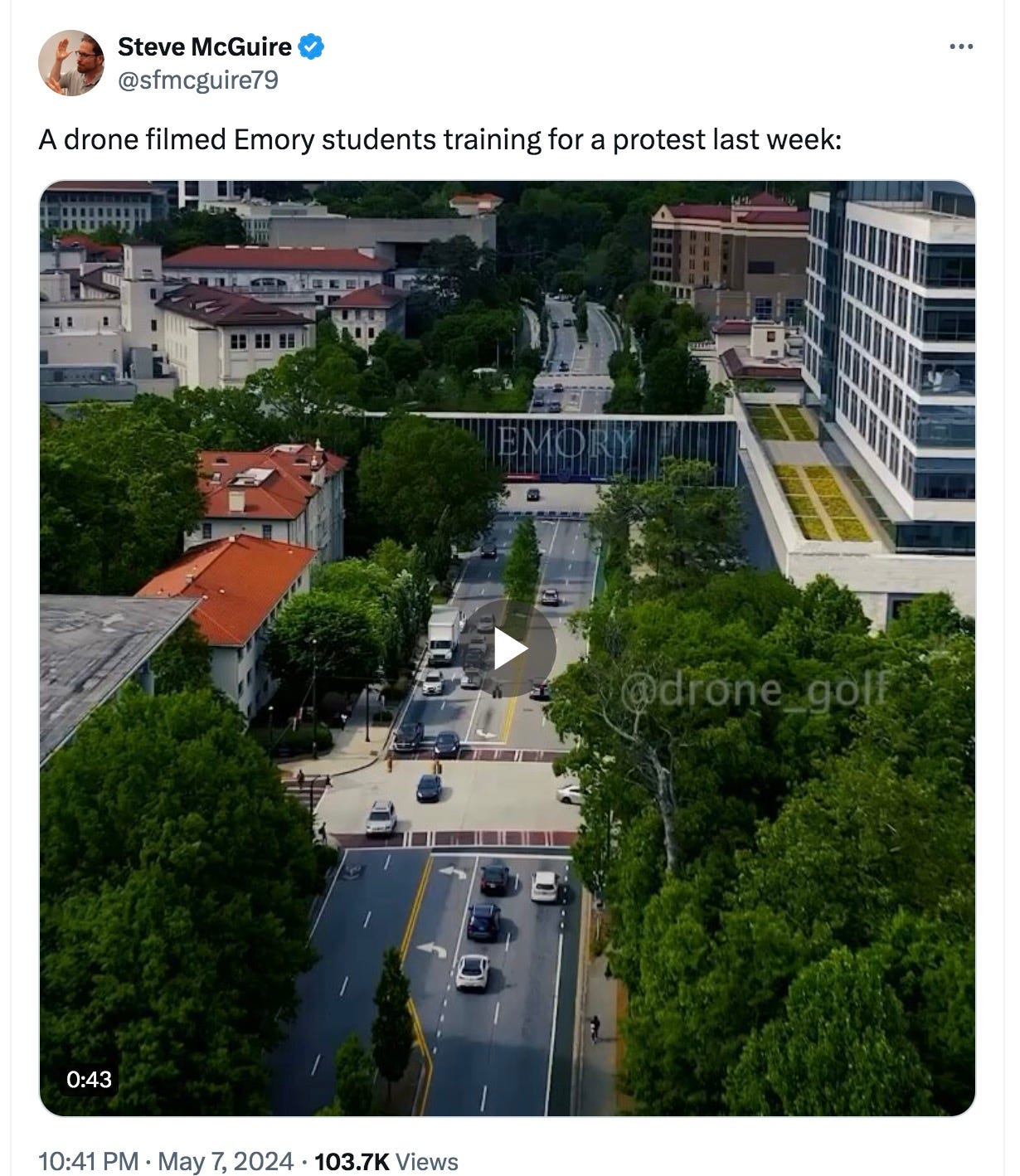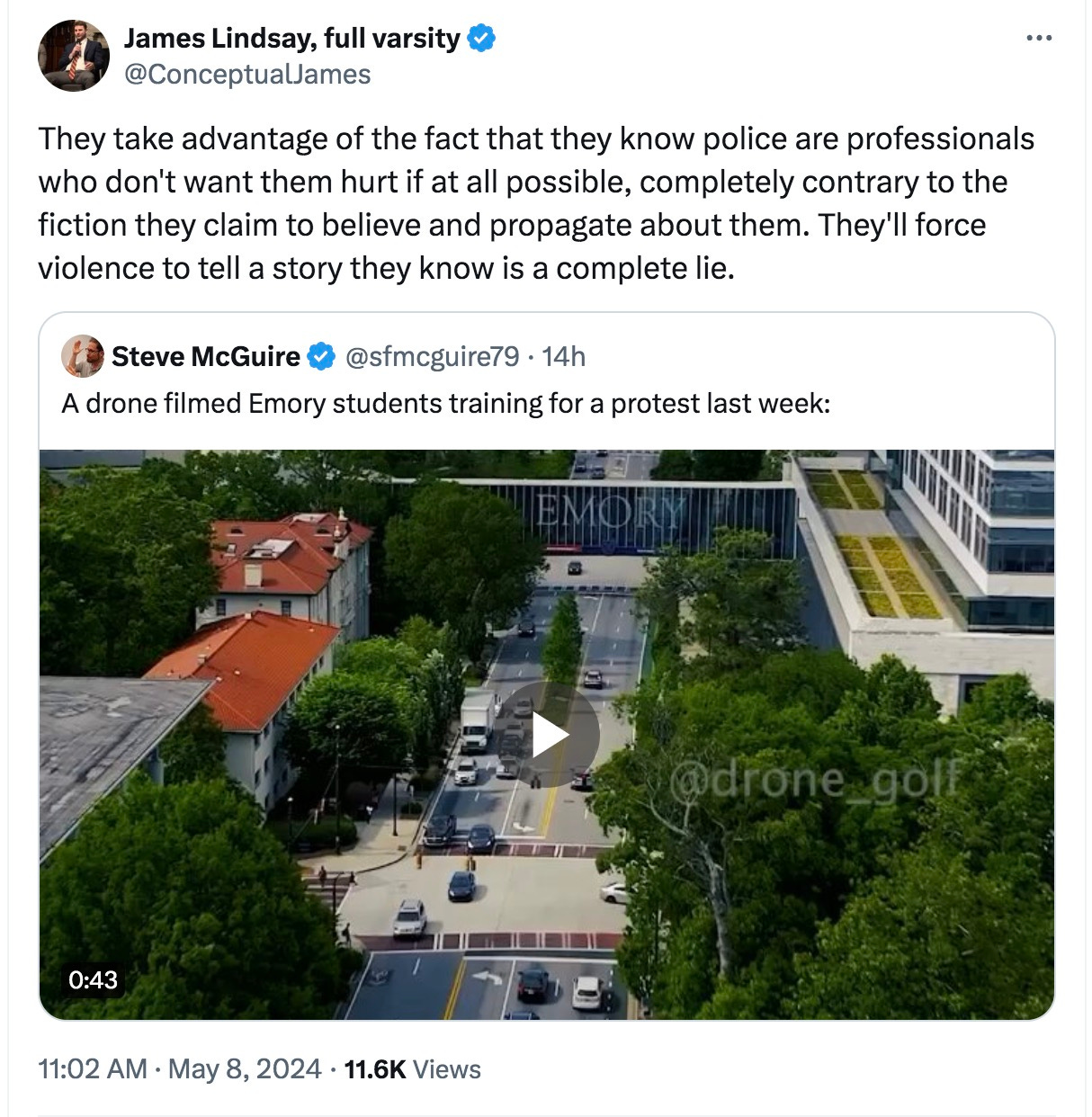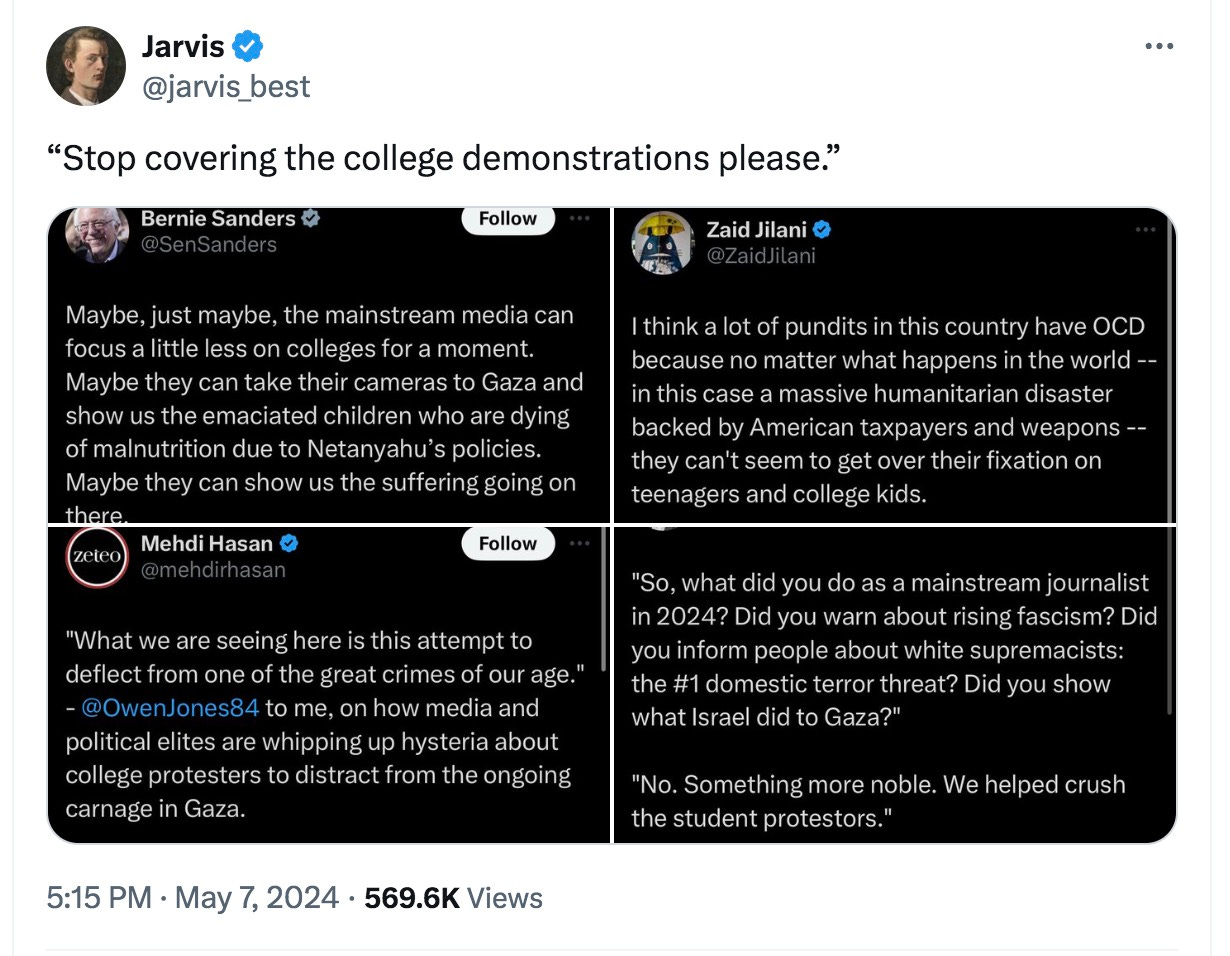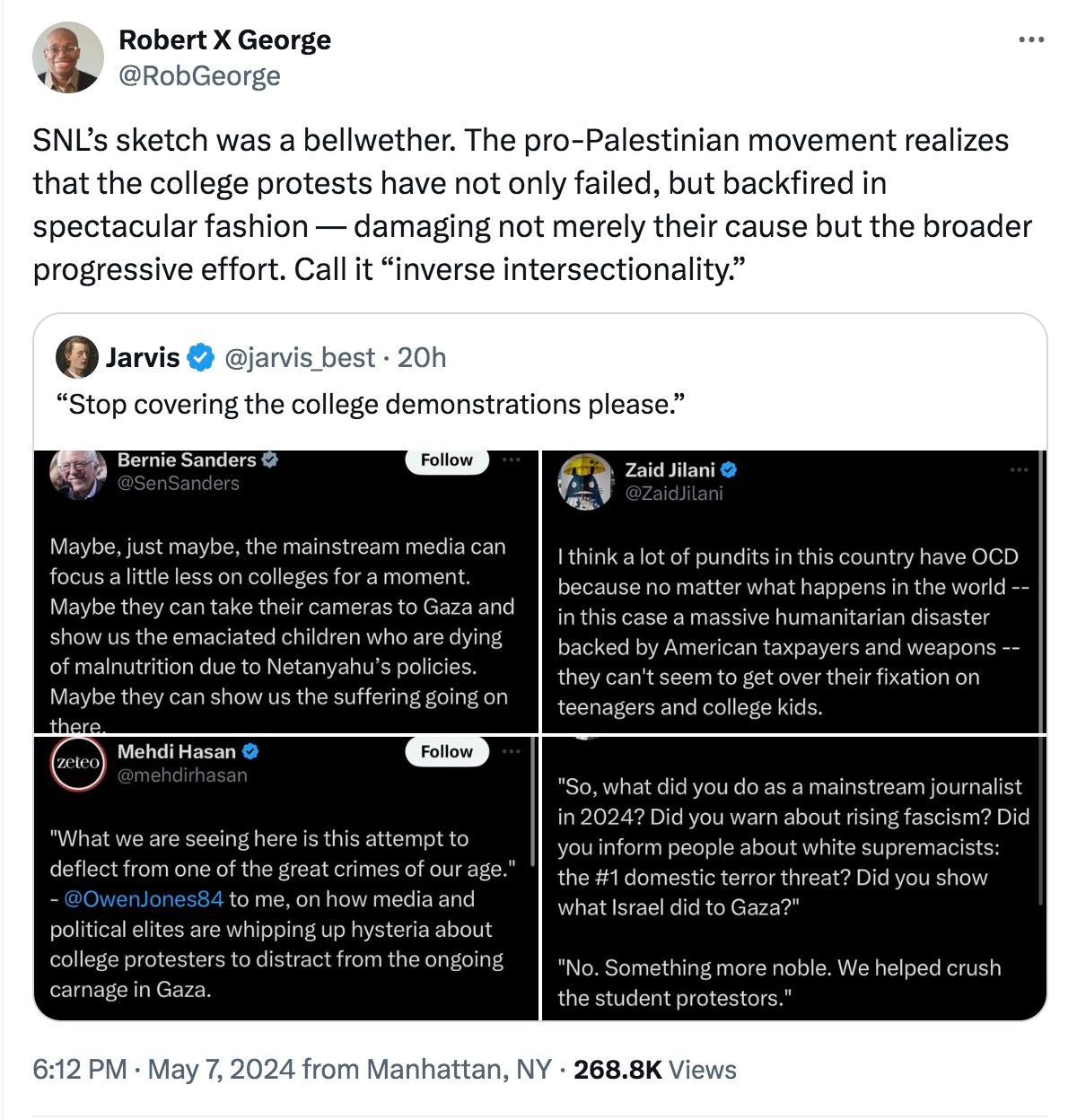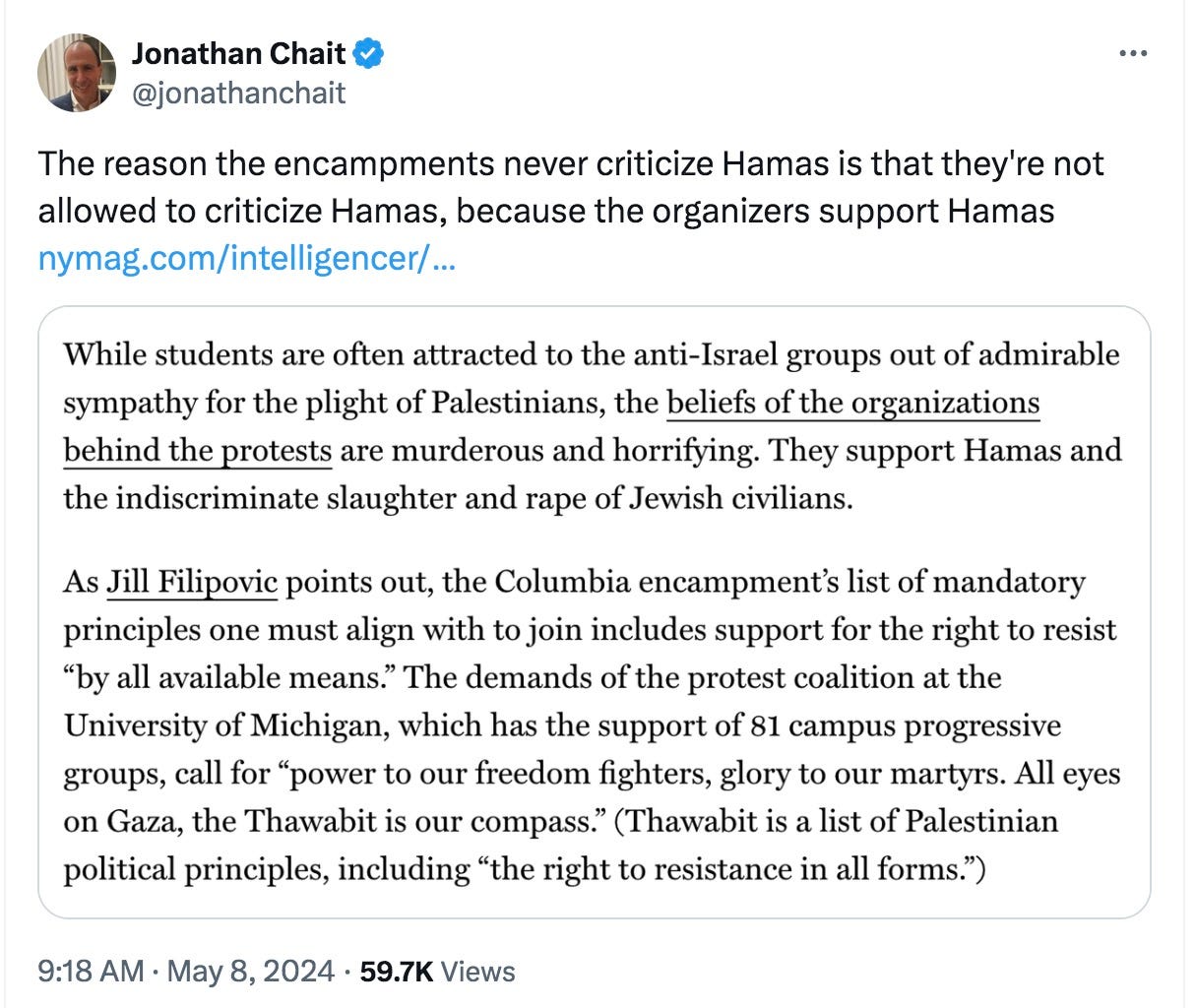E-Pluribus | May 8, 2024
Learn to love the questions; disinformation about disinformation; and the Pulitzer Prize goes to... waste.
A round-up of the latest and best musings on the rise of illiberalism in the public discourse:
Ben Klutsey & Lara Hope Schwartz: Expressive Freedom and Dialoguing Across Difference
Benjamin Klutsey at the Mercatus Center at George Mason University continues his series at Discourse Magazine on liberalism with American University professor Lara Hope Schwartz, discussing her book, “Try to Love the Questions.” Curiosity maybe be risky for cats, but Schwartz says it’s one of humanity’s biggest assets. Among other things, Klutsey and Schwartz discuss how curiosity can be channeled into a tool to increase dialogue and mutual understanding.
[SCHWARTZ:] In my experience, I think people are quite curious, and curiosity really helps us be people. We’re not very strong like gorillas or fast like horses. We have a big brain, and so our curiosity maybe is one of the biggest things we have. That being said, I think there are ways that education and culture can perhaps disincentivize curiosity or disincentivize admitting we’re curious about questions. One of the things that I want to do in my work is get people really in touch with how wonderful it is to engage curiously with hard questions.
[. . .]
I’ve spent an enormous amount of time this year talking about how censorship is never the answer to issues of inclusion, and I believe that. I think that remains true. I think expressive freedom is an idea that is time-tested, and there certainly have been rockier times than this that it has survived.
That being said, free speech isn’t enough. I’ve talked about this in other talks where if you say that you want to become an acclaimed and beloved pastry chef and study in France or Vienna and learn how to make these beautiful things that bring people joy, and they just give you a sack of flour, you’re going to be deeply dissatisfied. It’s true that you will need that flour to make the beautiful things. It’s also true that’s not cooking. That’s not cheffery.
That’s absolutely the case with dialogue. It’s absolutely the case with expressive freedom. Expressive freedom, it’s in the Bill of Rights. It’s an element—we think about the why. It exists so we can govern ourselves. It exists so that we can learn. That’s what it’s there for. My favorite quotation about this comes from Lawrence v. Texas: “Times can blind us to certain truths.” In my experience, it’s these conversations across difference that are the best thing that we have to unshackle ourselves from these perspective-limiting cultural norms. We talk it out.
[. . .]
Listening is really important. The book is called “Try to Love the Questions.” Here’s one of my favorite questions: What would you do if you wanted to understand? I like to sit with that question, and sometimes, maybe for some audiences or readers, it might spur the question like, “Do I want to understand?” That’s okay. I do want to understand, and I have some reasons that are really humanist. I sometimes see things happening in our society, and I think I really need to understand because I can’t bear the possibility that this is all born of hate or just being terrible, so I want to understand more.
Sometimes it’s a little bit transactional. In my experience, I’ve known that understanding is a key component to being able to do the things that I want to do around making change in the world, doing the things I want in the world. Right now, it includes protecting my school from censorious policies, and so it’s incumbent on me to understand the people who are saying they want some censorship. I cannot, by force, get things done. If you think about it and you say (for whatever reason; we could have all kinds of reasons) “I do want to understand,” one is relationships. If we want to continue to be in relationships with one another, that is easier to do if we understand.
I think if you say, “What would I do if I wanted to understand?” quite often, becoming a good listener is critical. Methods of becoming a good listener that I encourage in my teaching, in my actual teaching—I talk about this in the book, this idea of lovable questions. I really believe that well-designed questions are the key ingredient to robust and exciting, joyful inquiry. I try and use really well-designed questions that force my students to engage with nuance. I also tend to assign people to take a particular position or come up with the best good-faith arguments for a particular approach or position or role-play.
Read it all.
Freddie Sayers: How ‘fighting disinformation’ turns into political censorship
Last week, Around Twitter (X) highlighted how the site UnHerd has been targeted for “disinformation” for articles on the transgender issue. Now UnHerd’s Freddie Sayers takes to the pages of the Washington Post to tell the story of how some “disinformation” watch dogs are simply censors in sheep’s clothing.
With worries about the rise of “disinformation” in recent years, various projects were launched in the United States, Britain and elsewhere, many no doubt with good intentions, to combat disinformation’s deleterious effects on democratic values. What has emerged, though, is an opaque network of private and government-supported enterprises that appear intent on censoring political views they find unpalatable.
[. . .]
The American Sunlight Project’s goal, as the New York Times reported, is to fight back against “what she and others have described as a coordinated campaign by conservatives and others to undermine researchers, like her, who study the sources of disinformation.” In other words, the newest addition to this expanding bureaucracy is an anti-anti-disinformation unit — built to defend the fact-checking fraternity against attacks. Jankowicz has become a pugnacious presence on social media, seemingly offering herself as a public spokesperson for what increasingly looks like a political project.
Determining the extent of the damage done to media properties in recent years by self-appointed disinformation monitors is difficult because their influence on the complex machinery that serves online advertising is hard to measure. It is even unclear which groups’ evaluations are heeded in this murky system.
But I can attest that UnHerd has been substantially affected: Though NewsGuard, another disinformation ratings organization, gives us a trust score of 92.5 percent (five points ahead of the New York Times), the GDI at some point last year mysteriously placed us on their “dynamic exclusion list” of publications that supposedly promote disinformation and should be boycotted by advertisers. As a result, tech giant Oracle, which has a relationship with the GDI, provided a poor “brand safety” rating to our ad agency, and we received only a tiny fraction of the ad revenue the agency had predicted for our audience. Thankfully, we are primarily subscriber-funded, but for smaller publications more reliant on ad revenue, this would be a death knell to their business.
What did UnHerd do to provoke the GDI’s disapproval? After repeatedly asking the organization for an explanation, we eventually got an answer: “Our team re-reviewed the domain, the rating will not change as it continues to have anti-LGBTQI+ narratives. … The site authors have been called out for being anti-trans. Kathleen Stock is acknowledged as a ‘prominent gender-critical’ feminist.”
They did not point to any factual errors — their complaint was with the viewpoints of some of our contributors. In addition to decrying Stock, a prominent British philosopher and co-director of the Lesbian Project, the GDI email pointed to Julie Bindel, a lifelong campaigner to stop violence against women, and Debbie Hayton, who is transgender. Apparently the GDI equates “gender-critical” beliefs, or maintaining that biological sex differences exist, with “disinformation” — despite the fact that those beliefs are specifically protected in British law.
The GDI similarly targets other issues — such as climate change and the origins of the coronavirus — that are more properly the subject of robust debate, not matters of “disinformation” if a writer simply has a viewpoint that GDI disapproves.
Read the whole thing.
Kevin D. Williamson: The Pulitzer for Propaganda Goes to …
In his latest for The Dispatch, Kevin Williamson unloads on the Washington Post and the Pulitzer Prize committee for a recent award to the paper whose banner declares that “Democracy Dies in Darkness.” Williamson says the series the Post ran on AR-15 rifles in 2023 deserved to die in darkness, but was rewarded instead.
In 2023, the Washington Post published a series of articles about AR-15-style rifles. The series was scientifically illiterate, error-ridden, propagandistic, and willfully misleading.
Naturally, it has just been awarded the Pulitzer Prize.
[. . .]
The Washington Post’s series is best understood as propaganda because it invents a phony pretext for prohibiting AR-style rifles as “uniquely destructive” rather than deal with the thorny political realities of real-world anti-crime and gun-control efforts. And those issues are thorny: We could—and probably should—be more aggressive in prosecuting the crime of simple illegal firearm possession absent some additional violent offense, and we probably should hand down stiffer sentences more consistently for that crime rather than doing what we do now—which is dismissing the great majority of those cases or pleading them down to some trivial misdemeanor.
But rigorously enforcing the laws regarding firearm possession with prison sentences is going to mean a lot more young men becoming incarcerated felons earlier in life, and it is nearly certain that those young men will be disproportionately black and poor. Rigorously enforcing ordinary gun laws would also mean forcing prosecutors—from the federal level to the local one—to change their behavior and start prioritizing relatively humble, unglamorous, and politically unpopular gun prosecutions rather than saving their efforts for major gun-trafficking and organized-crime cases. We should probably arrest and prosecute a lot more straw-buyers than we do, but we should be clear-eyed about who those straw-buyers are going to be—people with otherwise clean criminal records, often girlfriends or family members of convicted felons—before we start locking them up.
The Pulitzer Prize has been awarded for some pretty bad journalism over the years, most famously for Walter Duranty’s fictitious coverage of the Soviet Union, reports the New York Times itself today describes as “largely discredited.” Duranty’s work was pretty obviously shoddy as journalism, part of a marketing campaign for the Soviet Union and for socialism—and the Pulitzer people bought it because they wanted it to be true. It fit with their politics. The same is the case with the Washington Post’s firearms coverage. That this kind of sloppy and propagandistic work deserves to be treated with contempt by journalists and by all honest-minded people is something that ought to be plain enough even to people who would prefer more aggressive regulation of firearms. The Post itself is endlessly lecturing the world about how facts matter. The Post should try living up to its rhetoric.
These errors are substantial and incontrovertible, and I have made a point out of demonstrating them to the Post’s editors, who have, so far, demonstrated exactly zero interest in correcting the record. The Pulitzer committee is mum, too. But actions speak loudly, too, and the Pulitzer committee has demonstrated that all that stuff about the relentless pursuit of the truth, wherever it leads, very often is baloney. In reality, the Post and the Pulitzer committee are just two more examples of the powerful using the institutions they control to serve their own interests—at the expense of the fundamental mission they all supposedly cherish, and even as they sanctimoniously insist that they are acting in the public interest.
Read it all here.
Around Twitter (X)
Protest training? Apparently it’s really a thing. Click for video.
Protesters want attention and publicity, right? Well, some backers of the pro-Palestinian/anti-Israel protesters think maybe there *is* such a thing as too much publicity after all:
And finally, Jonathan Chait with a hard truth for those who support the student “pro-Palestine” encampments:





